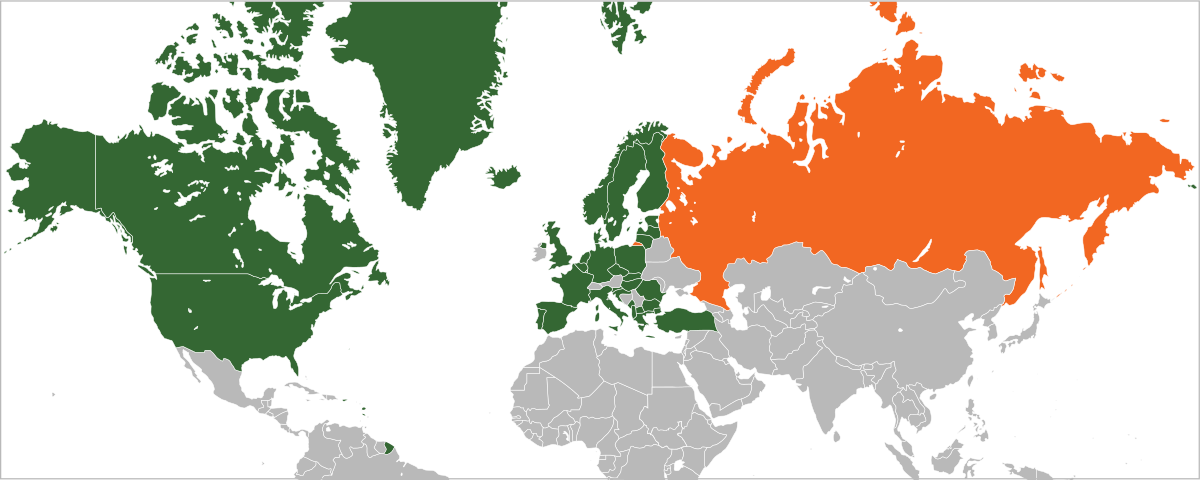The relationship between Russia and NATO has been characterized by a complex mix of cooperation and confrontation. Since the end of the Cold War, the two sides have struggled to find common ground, often leading to increased tensions and mistrust.
Historical Context
During the Cold War, NATO and the Warsaw Pact, led by the Soviet Union, were locked in a geopolitical rivalry. The collapse of the Soviet Union in 1991 led to hopes of a new era of cooperation between Russia and the West. However, strategic differences and mistrust have continued to shape the relationship.
Key Issues and Tensions
- NATO Enlargement: Russia has consistently opposed NATO’s eastward expansion, viewing it as a threat to its security interests. The inclusion of former Soviet states in NATO has further strained relations.
- Ukrainian Crisis: The 2014 annexation of Crimea and the ongoing conflict in eastern Ukraine have significantly deteriorated relations between Russia and NATO. NATO has condemned Russia’s actions and imposed sanctions.
- Military Buildup: Both Russia and NATO have engaged in military buildups, leading to increased tensions and concerns about a new arms race.
- Cybersecurity Threats: Cyberattacks, allegedly originating from Russia, have targeted NATO member states, raising concerns about cyberwarfare and hybrid threats.
Future Outlook
The future of Russia-NATO relations remains uncertain. While dialogue and cooperation are essential to prevent further escalation, the underlying tensions and strategic differences are likely to persist. Some potential paths forward include:
- Risk Reduction Measures: Implementing measures to reduce the risk of accidental conflict, such as establishing communication channels and transparency measures.
- Arms Control: Pursuing arms control agreements to limit military buildup and reduce the risk of a new arms race.
- Dialogue and Diplomacy: Maintaining diplomatic channels and engaging in constructive dialogue to address issues and build trust.
- Addressing Security Concerns: Addressing Russia’s security concerns, such as NATO’s eastward expansion, could help to reduce tensions.
However, the current geopolitical landscape is complex, and it remains to be seen whether Russia and NATO can find common ground and build a more stable and cooperative relationship.

Leave a Reply